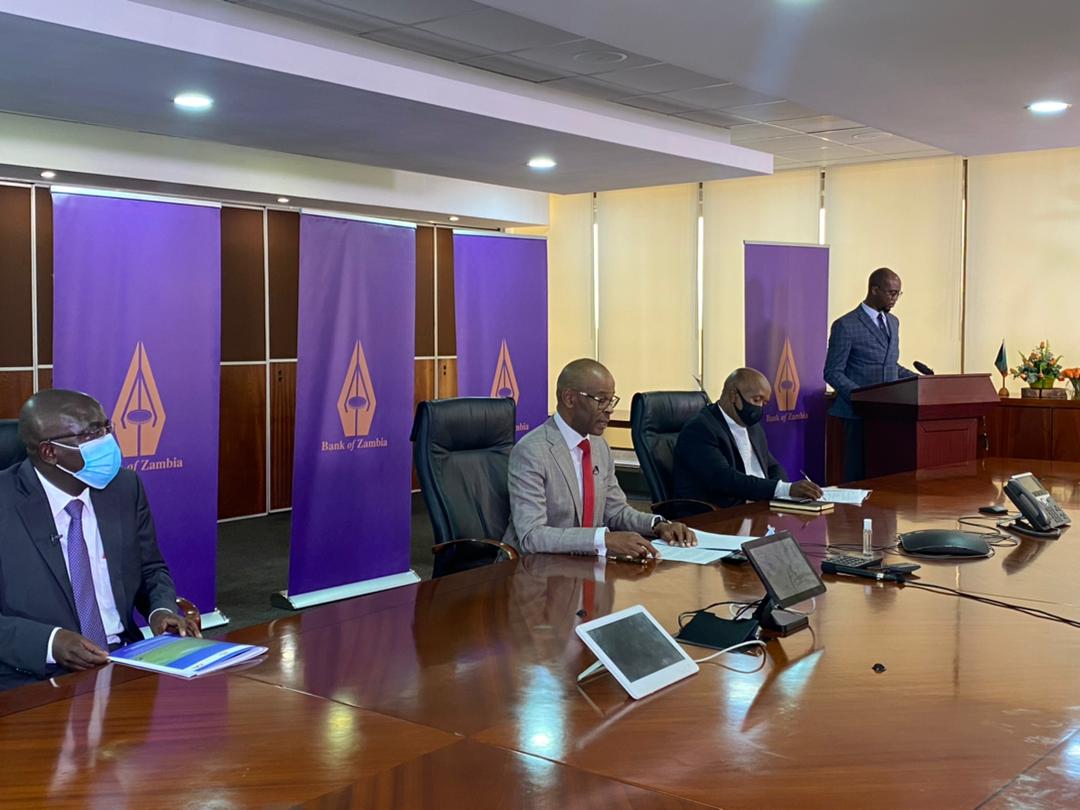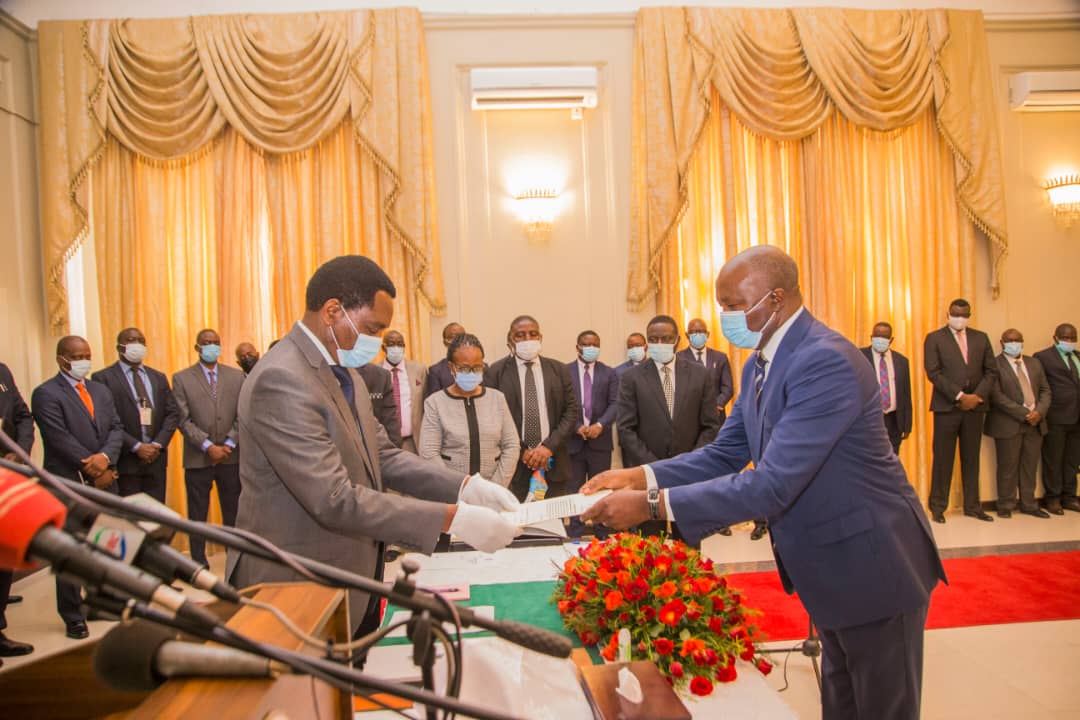Maintain 8.50 per cent MPR, CTPD’s Boyd Muleya prods BoZ
Notice: Undefined index: catFilterList in /home/zambi/public_html/wp-content/plugins/wp-likes/api.php on line 243

CTPD’s Head of Research Boyd Muleya
By Derrick Sinjela and Theresa Kalenga
As the Bank of Zambia (BoZ) Monetary Policy Committee (MPC) sets to announce its monetary policy decision on Wednesday 1st September 2021, Centre for Trade Policy and Development (CTPD) Head of Research Boyd Muleya expects the committee to maintain the Monetary Policy Rate (MPR) at 8.50 per cent.
In a Tuesday 31st August, 2021 Press Statement on CTPD’S Expectations on the Upcoming Bank of Zambia MPC Decision Announcement, Mr. Muleya insisted on a viewpoint that considering the high overall inflation, any adjustments to the policy rate should be upwards to arrest demand pressures and moderate inflation in the medium term.

BoZ Governor Christopher Mvunga
In a Press Statement circulated by CTPD Information and Communications Specialist Ms. Mwaka Nyimbili, Muleya took a status quo position on account that inflation is expected to continue above the upper bound of the 6 – 8 per cent target range over the forecast horizon.

CTPD Information and Communications Specialist Ms. Mwaka Nyimbili
Explained Muleya: “Annual inflation currently stands at 24.4% recorded in the month of August 2021 from 24.6% in July 2021, representing a 2.2 per cent reduction. Annual food inflation has increased from 31.2 per cent to 31.6 per cent (0.4 per cent rise), while annual non-food inflation has reduced from 17 per cent to 16.3 %. The reduction in annual inflation has been mainly attributed to price movements in non-food items”.
The CTPD Head Researcher noted that despite the reduction in annual inflation for the month of August 2021, overall inflation rose to a quarterly average of 24.5 per cent in the third quarter of 2021, after closing the previous quarter at around 22.9 per cent, driven mainly by an increase in food inflation as non-food inflation slowed down.
“Food Inflation rose to a quarterly average of 31.3 per cent from the previous average of 27.8 per cent while non-food inflation declined to a quarterly average of 16.8 per cent from the previous 17.02 per cent. Supply-side constraints contributed to the rise in overall inflation over the review period. Developments in the FOREX market are expected to support the moderation of inflationary pressures in the short-term,” stated Muleya.

President Hakainde Hichilema swears Dr. Situmbeko Musokotwane as Finance Minister at State House in Lusaka
Alluding to the United Party for National Development (UPND) New Dawn Alliance headed by Hakainde Hichilema and Vice President, Reverend Mutale Nalumango defeating 6th Head of State, Edgar Chagwa Lungu’s Patriotic Front (PF), Muleya said: “Following the recent political developments, and the subsequent investor confidence from the change in government, the Zambian Kwacha appreciated steadily, dropping to around K15/$ from an average of K20/$. This outcome thrives on the already conducive environment created by maize and wheat supply from a good harvest, favorable copper prices and continued investor confidence in the government securities market by non-residents. Furthermore, the allocation of the Special Drawings Right (SDRs) by the IMF to the tune of $1.3 billion, will remain supportive of the foreign exchange market and in turn lead to lower inflation in the days ahead”.

ECL with HH
Muleya reiterated that it is CTPD’s considered view that the current macroeconomic environment provides the scope for BoZ to enhance its focus on containing the rising quarterly inflation and anchor inflation expectations against the efforts made to support financial system stability and growth.
“The decision also recognizes existing susceptibilities in the financial sector and delicate growth. To restore and achieve macroeconomic stability, the implementation of fiscal adjustment measures in line with the Economic Recovery Programme and completing a deal with the IMF for the much-awaited Extended Credit Facility remain critical,” admonished Muleya.
CTPD is a not- for –profit, membership-based trade policy and development think tank established in 1999 as the Civil Society Trade Network (CSTNZ), until 2009 when it was rebranded as the Centre for Trade Policy and Development, with a mandate to influence pro-poor trade and investment reforms at national, regional and multilateral levels, facilitate stakeholder participation using trade as a tool for poverty eradication.























